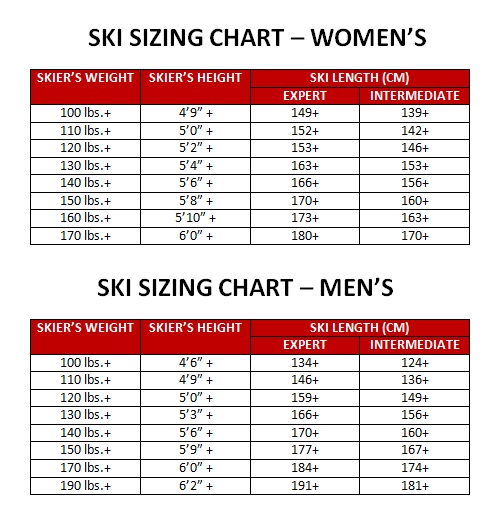Carving down a pristine slope, feeling the wind in your hair and the crisp mountain air on your face – the perfect ski day hinges on having the right equipment. And perhaps no piece of equipment is more crucial than your skis. But with so many options available, how do you determine the correct ski length? Choosing the right skis can dramatically impact your performance and enjoyment on the mountain. This comprehensive guide will help you navigate the world of ski sizing and empower you to find the perfect pair.
Selecting the appropriate ski length isn't a one-size-fits-all proposition. A multitude of factors influence the ideal ski size, including your height, weight, skiing ability, and preferred terrain. While traditional sizing charts provide a general starting point, understanding the nuances of ski length selection is essential for maximizing your on-snow experience. Too-short skis can feel unstable at higher speeds, while overly long skis can be cumbersome and difficult to control.
Historically, skis were significantly longer than what is recommended today. Early skis were primarily used for transportation and were often longer than the skier's height. As skiing evolved into a recreational activity, ski lengths gradually decreased, allowing for greater maneuverability and control. The introduction of shaped skis further revolutionized ski design, enabling shorter skis to perform effectively in various snow conditions and at higher speeds.
The importance of selecting the proper ski length cannot be overstated. Optimal ski length contributes significantly to stability, control, and overall performance. Choosing skis that are too long or too short can hinder your progress, increase the risk of falls, and diminish the enjoyment of your skiing experience. Finding the sweet spot in ski length is key to unlocking your full potential on the slopes.
One of the main issues surrounding ski length selection is the abundance of conflicting information. While general guidelines exist, individual preferences and skiing styles also play a crucial role. For example, a more aggressive skier might prefer a slightly longer ski for increased stability at high speeds, while a beginner might opt for a shorter ski for easier maneuverability. This guide will address these nuances and provide clarity on how to tailor your ski length selection to your specific needs.
Ski length is typically measured in centimeters (cm). As a general rule, skis should reach somewhere between your chin and forehead when stood on end. However, this is just a starting point. Factors such as weight, ability level, and ski type (e.g., powder skis, all-mountain skis, race skis) will further refine this recommendation. For example, powder skis are generally longer than all-mountain skis for better floatation in deep snow.
Three key benefits of choosing the right ski length are improved control, enhanced performance, and increased confidence. Properly sized skis allow for precise turns, better edge grip, and greater stability. This translates to improved performance on various terrains and snow conditions. As your control and performance improve, your confidence on the slopes will naturally increase, leading to a more enjoyable and fulfilling skiing experience.
A simple action plan for determining the right ski length involves considering your height, weight, skill level, and skiing style. Consult a ski sizing chart and adjust the recommended length based on these factors. For example, if you are a heavier skier, you might consider going slightly longer than the chart suggests. Conversely, a lighter skier might opt for a slightly shorter ski.
Advantages and Disadvantages of Different Ski Lengths
| Ski Length | Advantages | Disadvantages |
|---|---|---|
| Too Short | Easy to turn, maneuverable at low speeds | Unstable at high speeds, less edge grip |
| Too Long | Stable at high speeds, better float in powder | Difficult to turn, tiring to control |
| Just Right | Optimal balance of stability, control, and maneuverability | - |
Frequently Asked Questions:
Q: What ski length is right for me?
A: It depends on your height, weight, skill level, and skiing style.
Choosing the perfect ski length is a crucial step in maximizing your on-snow enjoyment and performance. By considering factors such as your height, weight, skill level, and preferred terrain, you can select skis that enhance your control, stability, and confidence. Remember, the right skis can make all the difference in unlocking your full potential on the mountain. Consult with a ski shop professional for personalized recommendations and don't be afraid to experiment to find the perfect fit. Embrace the thrill of the slopes with confidence, knowing that you're equipped with the perfect tools for an unforgettable skiing experience.
Understanding gang signs and their impact
Unlocking number ninja skills your guide to subtraction basic facts worksheets
Unlocking personality the power of handwriting fonts in ms word
What Ski Equipment Do I need - Khao Tick On
An Experts Tips to Finding the Right Size Skis for You - Khao Tick On
How To Measure Snow Ski Length - Khao Tick On
Head Ski Size Chart - Khao Tick On
Ski Pole Sizing Chart - Khao Tick On
Ski Sizing Chart Mens - Khao Tick On
Proper Ski Length Chart - Khao Tick On
Proper Ski Length Chart - Khao Tick On
What Ski Length Should I Get Choose The Correct Ski Size - Khao Tick On
Size Of Skis Chart - Khao Tick On
What Size Skis For Toddler at Joseph Gibbs blog - Khao Tick On
Recommended Ski Length Chart - Khao Tick On
Proper Ski Length Chart - Khao Tick On












